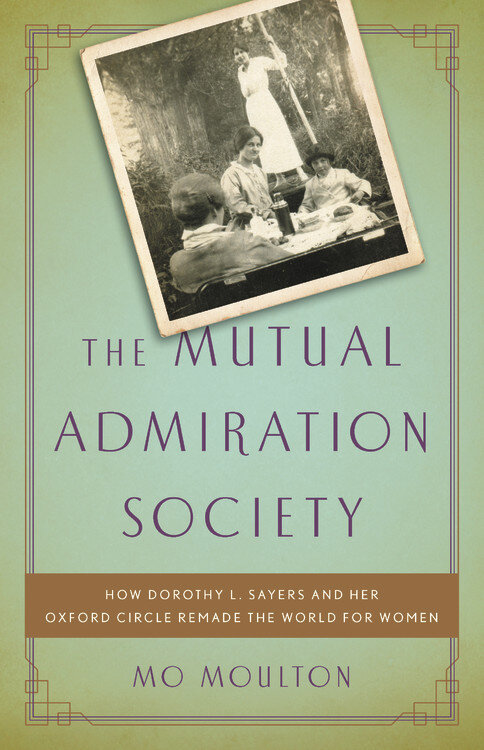The Mutual Admiration Society by Mo Moulton
/The Mutual Admiration Society: How Dorothy L. Sayers and Her Oxford Friends Remade the World for Women
By Mo Moulton
Basic Books, 2019
The story Mo Moulton has unearthed and stitched together in The Mutual Admiration Society, the story of a group of young women attending Oxford’s Somerville College at the beginning of the 20th century, is a glowingly egalitarian tale despite seeming to have one standout star: the great translator and mystery novel author Dorothy Sayers (referred to throughout the book, with appealing sonorousness, as “DLS”). Around DLS in those early Somerville days gathered similarly eloquent, funny, and vibrant young women: Charis Barnett Frankenburg, Dorothy Rowe, Muriel Jaeger, and the future Tudor scholar Muriel St. Clare Byrne.
Through extensive research and in leanly eloquent prose, Moulton brings this grand, snarky, fiercely intelligent old group alive on the page, drawn together as much by their shared passions as by their shared obstacles. “Seeing one another without the limiting lens of Edwardian gender roles, they gave each other scope to develop,” Moulton writes. “ … work was never only about passing examinations or securing future employment. Writing and thinking instead took on a transcendent importance, not least as the medium through which new friendships and new identities could be consolidated.”
Moulton follows the members of the MAS and their loved ones through their lives, from the questing enthusiasms of their youth to the various pinnacles of their professional lives to the lingering melancholy of their older years. Moulton quotes a reporter visiting Muriel St. Clare Byrne after the publication of her epic The Lisle Letters in 1981:
“The piles of books and papers recede in the twilight; the photographs of Dorothy Sayers and the white cats and other dear friends have become obscured. Even her eyes - bright and alert under the wild white hair - look tired now. But in the fading light from the window, the pile of red and blue books on the desk still glows with life.”
The whole of The Mutual Admiration Society similarly glows with life, even though Moulton is always unblinkingly clear about the limitations these women faced. The MAS gave them a grounding of affection and affirmation that clearly imparted an inner strength even more valuable than the outer benefits of collaboration, but, the book’s subtitle notwithstanding, the world was not entirely remade:
Plenty of doors remained closed; plenty of mediocre men easily achieved what these women fought for but never reached. Restricted reproductive options meant that DLS had to contort herself to keep her independence after conceiving outside of marriage. Muriel had profound, long-lasting romantic relationships with two women, but had to conceal letters and write carefully to prevent scandal, even as she made use of the legal options at her disposal - such as wills and insurance policies - to protect her household [her lifelong partner Marjorie Barber]
This is a wonderful, inviting work of scholarship and a reconstruction long overdue - and of course a must-read for DLS’s legion of fans.
—Steve Donoghue is a founding editor of Open Letters Monthly. His book criticism has appeared in The Boston Globe, The Wall Street Journal, The Historical Novel Society, and The American Conservative. He writes regularly for The National, The Washington Post, The Vineyard Gazette, and The Christian Science Monitor. His website is http://www.stevedonoghue.com.
